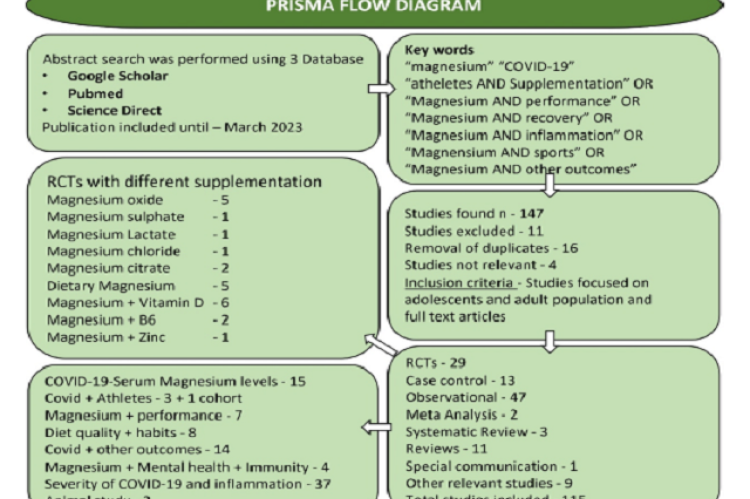The lingering effects of COVID-19 continue to exert an impact on different populations, particularly athletes, facing a potential decrease in performance due to prolonged inflammation. Due to disrupted training, competition schedules, isolation, and uncertainty, athletes also experience mental health challenges, including stress, anxiety, and depression. Optimal nutrition is therefore essential for maintaining energy balance, immunity, and mental health. One such vital micronutrient Magnesium (Mg) serves more than 300 physiological functions including signaling molecules, regulating ATP synthesis, storage, and transport. Low or below optimal levels of Mg can have a negative impact on various metabolic processes. Search for literature was performed using various databases, including Google Scholar, PubMed, and ScienceDirect using various keywords. The literature analysis revealed compelling evidence indicating an inverse relationship between Mg levels and the severity of COVID-19. Mg was found to play a potential role in the regulation of Angiotensin-Converting Enzyme (ACE) 2 receptors and the same pathway is used by the SARS-CoV-2 virus to enter and infect the cells. Among athletes, Mg supplementation has demonstrated positive effects on recovery, stress, sleep, and the reduction of inflammation. From the findings of this narrative review, we summarize that Mg supplementation emerges as a potential strategy for mitigating post-COVID-19 syndrome, particularly in athletes. However, it is crucial to note that the intake of supplements should only be done under the guidance of healthcare professionals or nutritionists, considering individual body requirements and needs.
View:
- PDF (319.28 KB)


